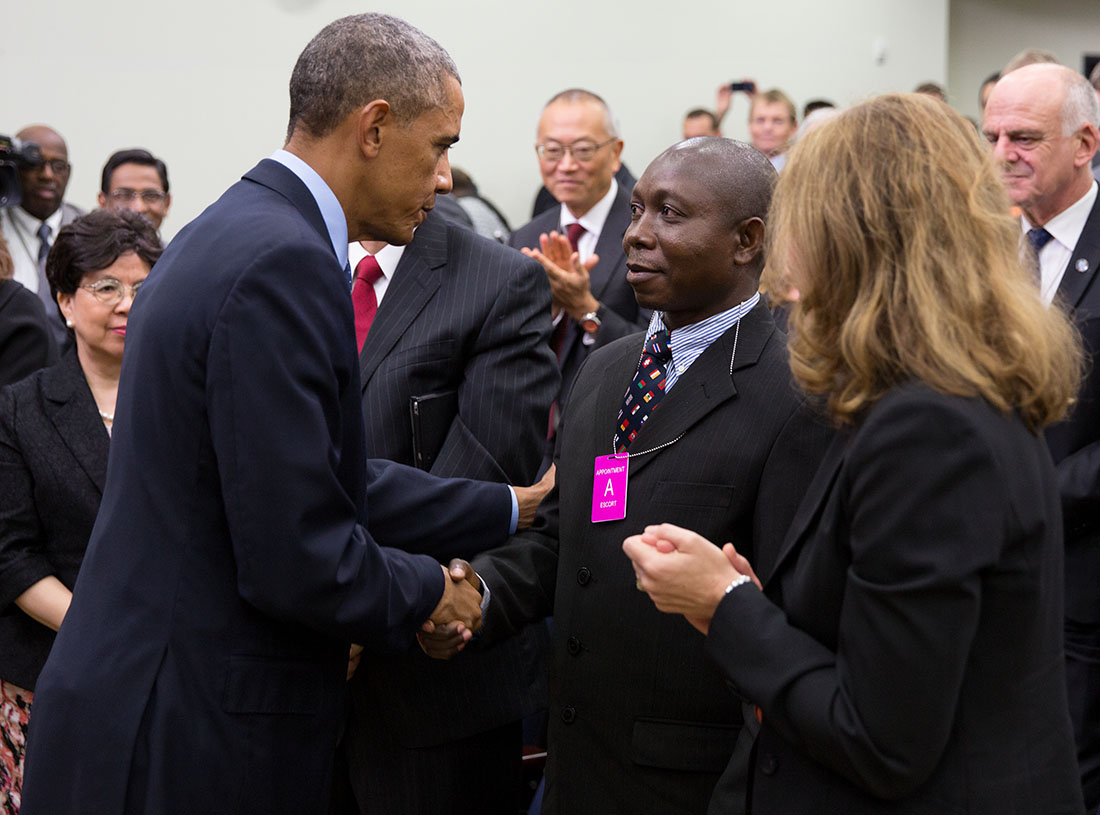
The nations of the world, along with key international organizations, gather at the White House today to advance a Global Health Security Agenda that will help keep the world safe from infectious disease threats.
This meeting is a critical opportunity to increase international commitment and, more importantly, action to stop the Ebola epidemic in West Africa and the infectious disease threats to come.
Ebola is a critical issue for the world community. There’s a real risk to the stability and security of societies, as governments are increasingly challenged to not only control Ebola but to provide basic health services and other government functions. The stability of these countries and their economies, as well as those of their neighbors and of others, is at increasing risk.
Ebola is the most recent tragic example of why it is imperative to work together to make the world safer from infectious disease outbreaks. Ebola is precisely the kind of health threat the Global Health Security Agenda could have prevented. We and our partner countries have agreed to work together so that effective prevention, detection, and response mechanisms are present in every country around the world.
There are three key actions we must take:
- Prevent avoidable catastrophes and epidemics. We can only do this if we track health threats and work strategically to prevent emergence and spread.
- Detect threats early. This requires real-time disease tracking and effective systems to identify clusters of illness and to do the laboratory tests, including collecting outbreak specimens and safely and securely transporting them for accurate laboratory testing.
- Respond rapidly and effectively. Each country needs trained disease detectives. These individuals can work most effectively in interconnected emergency operations centers connected with response capacity ready to spring into action.
CDC has many years of experience assisting countries throughout the world with public health emergency detection and response capacity. Recent demonstration projects in Uganda and Vietnam created emergency operations centers, national laboratory systems, and real-time information systems, and are a proof of principle that global health security systems can be rapidly implemented and used immediately to find and stop health threats.
Last year, I visited urban and rural areas in Uganda to review the progress of this pilot project and I was deeply impressed; this project is one of the highest impact initiatives CDC has undertaken in my time as director. Progress improving disease detection and response in these countries shows that such models can work on a global scale.
One critical need is to train disease detectives around the world so that they can close gaps in surveillance and detect disease outbreaks as early as possible. CDC’s Epidemic Intelligence Service program is a global model for this type of training.
Since the 1980s, we’ve helped 40 other countries develop their own similar training. Trainees and graduates of these programs find and stop hundreds of outbreaks a year, usually without CDC’s direct involvement, which is exactly the result that we will see the more we invest in smart and effective programs like this one. In fact, graduates of these programs from Cameroon, Democratic Republic of Congo, Kenya, Morocco, South Africa, and Tanzania have been working on the ground to help stop the current Ebola outbreak.
It is increasingly clear that the health of other nations has a direct impact on health in the United States -- infectious diseases do not recognize borders, and a disease outbreak is just a plane trip away.
Strengthening global health security will protect Americans, and protect people from around the world.
Tom Frieden, MD, MPH, is the Director of the Centers for Disease Control and Prevention.
Learn more:


